
Matthew Wright 7am - 10am
3 January 2024, 08:57
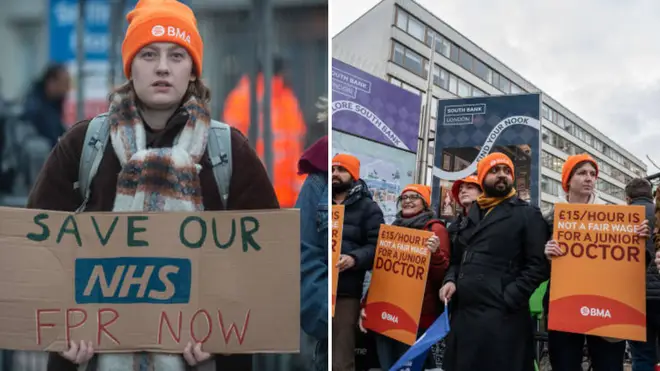
Thousands of junior doctors have walked out again for a six-day strike on Wednesday as part of a long-running pay dispute with the government.
The latest strikes - the longest the NHS has ever suffered - will cause misery for tens of thousands of people across the nation, as patients who have waited a long time for treatment are forced to have operations and appointments postponed.
These walkouts come after three days of strikes in late December, as well as more industrial action earlier in the year.
Health leaders have urged people who are sick to seek treatment despite the strikes, with GPs and pharmacies unaffected, and hospitals focusing on urgent care.
Here we explain what the strikes are about and how they will affect patients.

Watch Again: BMA's Dr Tal Ellenbogen joins Nick Ferrari as six day strike begins
The industrial action only affects junior doctors in England, which is any medical school graduate who has between one and nine years of experience. They make up about half of the medical workforce in England.
Medical students and staff are not allowed to man picket lines when they are supposed to be on duty.
But they can come and offer their support when they are not working.
Junior doctors working in the armed forces are also not allowed to take part in the industrial action.

James O'Brien on the state of the NHS amid new junior doctor strikes
The junior doctors want more money, and processes in place to keep pay rises coming in future.
They say they are striking to protect the future of the NHS, as overworked staff are suffering burnout and leaving to work in other countries.
They were given an 8.8% pay rise in the summer, and offered a further 3% increase during recent negotiations near the end of 2023.
The BMA turned the increase down because they claimed it did not compensate for the real-term pay cut its members have endured since 2008.
The union is seeking "pay restoration" to 2008 levels, which it has estimated as the equivalent of a 35% pay rise.
Striking junior doctors also want a mechanism that would prevent any real-term future pay cuts against inflation and the cost of living.
As well as this, they are demanding a reformed independent review body for doctors' and dentists' pay recommendations that they say would "safeguard recruitment and retention of junior doctors".
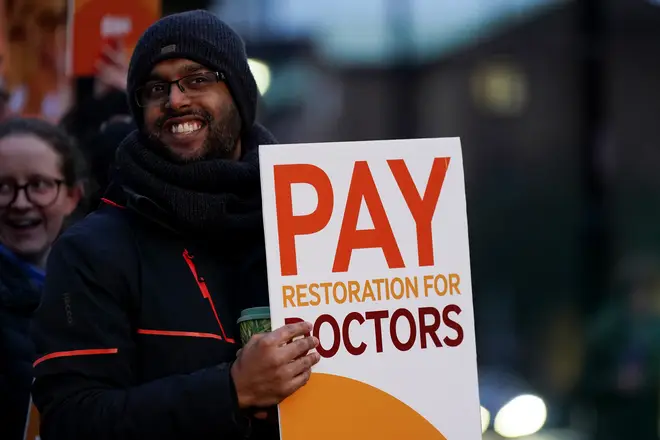
Almost all pre-planned hospital services will be affected by strikes.
NHS bosses have said that staff still working will focus mainly on urgent and emergency care.
Patients are expected to be hit by more than 200,000 cancellations during the walkout, and NHS leaders have warned the action will hinder efforts to reduce waiting lists.
Nick Hulme, the chief executive of East Suffolk and North Essex NHS Foundation Trust, said the strikes have "absolutely decimated our plans to attack the long waiting times."
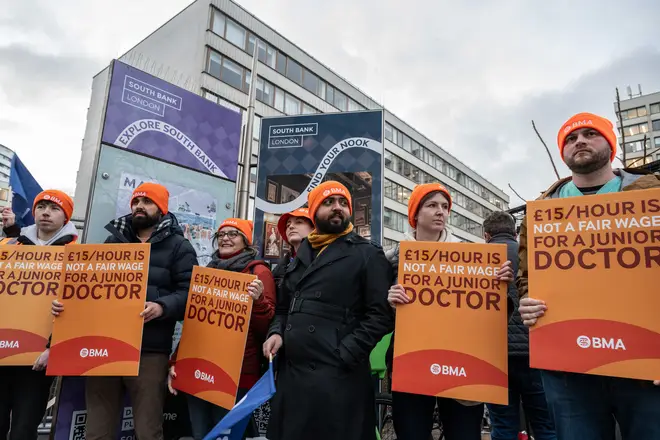
If you are ill, you should still seek medical attention despite the strikes.
GP and pharmacy services will be unaffected by the walkouts, and people are being urged to use these services as they would normally.
Patients can also use 111 online, or call 111.
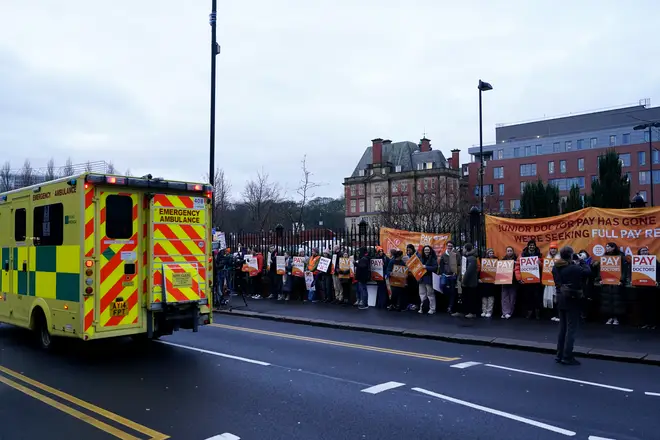
Junior doctors in Wales are planning a three-day strike from January 15.
Doctors in training in Northern Ireland are being balloted for potential strike action.
Those in Scotland have already come to an agreement with the Scottish government.
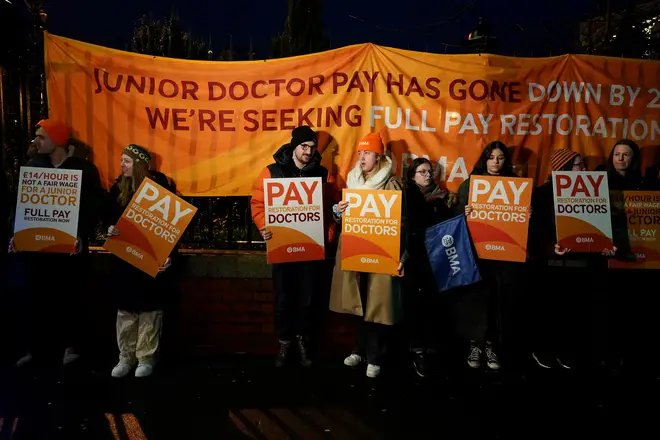
No further strikes have been called in England yet.
Hospital leaders hope that ministers union leaders will start negotiating again after the strikes finish on January 9.
Professor Sir Stephen Powis, the NHS' medical director, said: "Six consecutive days of industrial action comes at one of our busiest periods - the action will not only have an enormous impact on planned care, but comes on top of a host of seasonal pressures such as COVID, flu, and staff absences due to sickness - all of which is impacting on how patients flow through hospitals.
"Our colleagues across the health service are doing their very best for patients every day, with extensive preparations in place, but there's no doubt they are starting 2024 on the back foot."
Dr Layla McCay, director of policy at the NHS Confederation, told LBC's Nick Ferrari that the strikes may present the health service's "toughest challenge yet".
She said: "In order to maintain patient safety as much as possible, get people the care they need as quickly as possible, all the resources available will be concentrated in the most urgent and emergency care. And that means that that lots of other care will need to be postponed."